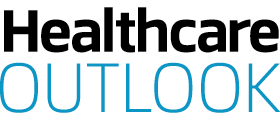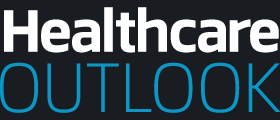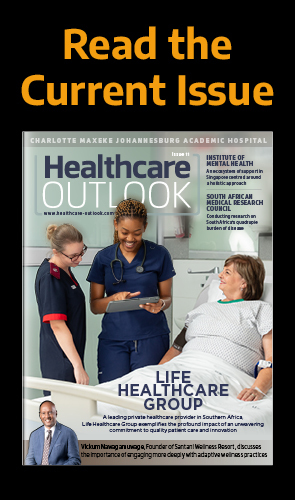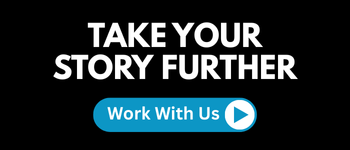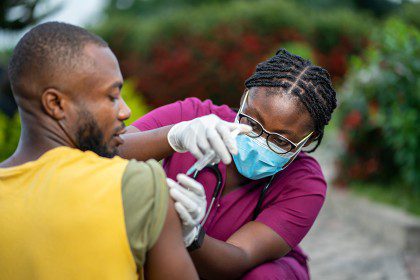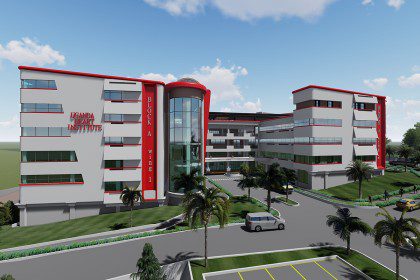Committed to improving health in the communities of Hawai’i, AlohaCare embraces a journey of well-being. CEO, Francoise Culley-Trotman, provides valuable insights into industry challenges and proactive programs to overcome them.
THE HEALTHCARE PEARL OF THE PACIFIC
Hawai‘i, a beautiful and remote island chain in the US, exudes a unique and desirable sense of community due to its isolation.
The beautiful jewel-toned waters, lush green mountains, and captivating misty waterfalls create an enchanting natural landscape.
It is notable that life in Hawai‘i is further enriched by residents enjoying the longest life expectancy in the country, which can be partially attributed to the high standard of medical services available.
Indeed, US News and World Report has recognized the state as number one in terms of healthcare access – aiding its world-class wellness is AlohaCare, unique to Hawai‘i and headquartered in the capital city of Honolulu.
“We are the only community-founded, non-profit safety net health plan that exclusively serves Medicaid and dual-eligible Medicare members,” introduces Francoise Culley-Trotman, CEO of AlohaCare.
“Our origins go back to 1994, the same year that Hawai‘i’s Medicaid program, QUEST Integration, was established,” she continues.
With unwavering dedication, Community Health Centers (CHCs) across the islands came together to champion a bold local healthcare plan to care for the needs of often underserved communities.
“Today, our board is comprised of representatives from those same CHCs and other organizations; moreover, through the years, we have been faithful to empowering individual and community health.”
AlohaCare has focused on a holistic approach, considering behavioral and social factors that impact members’ overall well-being, including housing, nutrition, education, culture, and community.
Blossoming into a full organization from an idea incepted 30 years ago, it employs almost 300 people and serves over 75,000 members throughout the Hawaiian islands.
“Witnessing our impact on our members and communities is a remarkable anniversary gift. Even though we have grown and evolved, we have remained true to our roots and mission to continue to promote health equity across Hawai‘i,” declares Culley-Trotman.
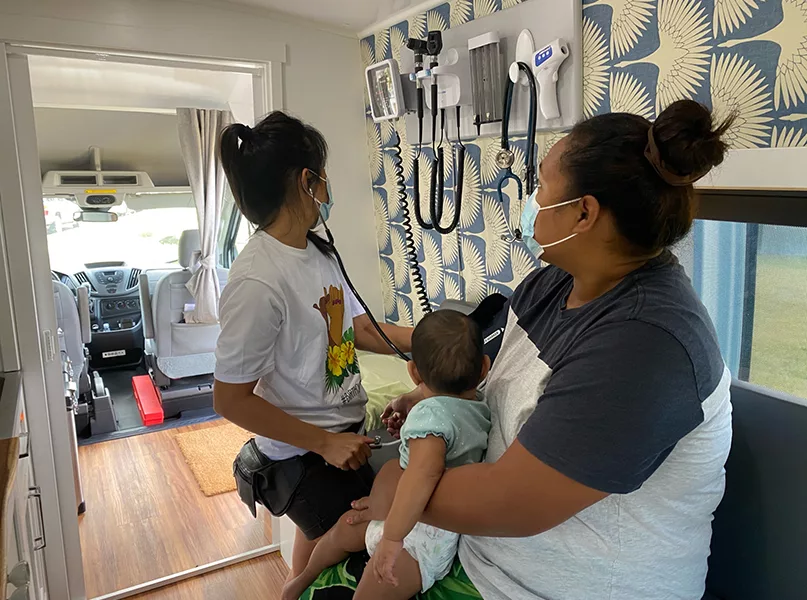
COMBATING CHALLENGES IN CARE
In Hawai‘i, the healthcare industry faces challenges similar to the US as a whole, with limited access to care due to poverty and homelessness coupled with the highest cost of living in the US.
A sustainable healthcare system relies on reducing and controlling the total cost of care, putting pressure on government health plans like AlohaCare and state governments that operate Medicaid and dual-eligible Medicare programs.
“We are excited about innovative approaches to empower Medicaid and dual-eligible Medicare beneficiaries, expand the healthcare workforce, and address social determinants of health. Our state and local entities are collaborating to find solutions to improve the lives of the communities we serve,” affirms Culley-Trotman.
Despite one major improvement being the adoption of social identifiers of health and whole-person care, which is still a work in progress, there are additional barriers to overcome.
For example, access to healthcare in Hawai‘i is challenging due to provider shortages in rural areas and neighboring islands.
“Accessing services and specialists often requires traveling to O‘ahu, where business and commerce are centered. Additionally, the state-wide provider shortage and long appointment wait times can worsen this challenge.
“If an individual misses their flight or it is canceled, they may experience extreme wait times to get the service they need. This puts at-risk individuals such as mothers with high-risk pregnancies at an extreme disadvantage, and some have had to move to O‘ahu for care,” Culley-Trotman explains.
Healthcare disparities and shortages exist in rural US areas. Fortunately, Hawai‘i defends women’s reproductive rights, which have been eroded in other states, but it still faces a high degree of homelessness, exacerbating issues related to poverty, health, and resources.
Despite these challenges, as a non-profit health plan, AlohaCare continuously advocates for accessible healthcare for all.
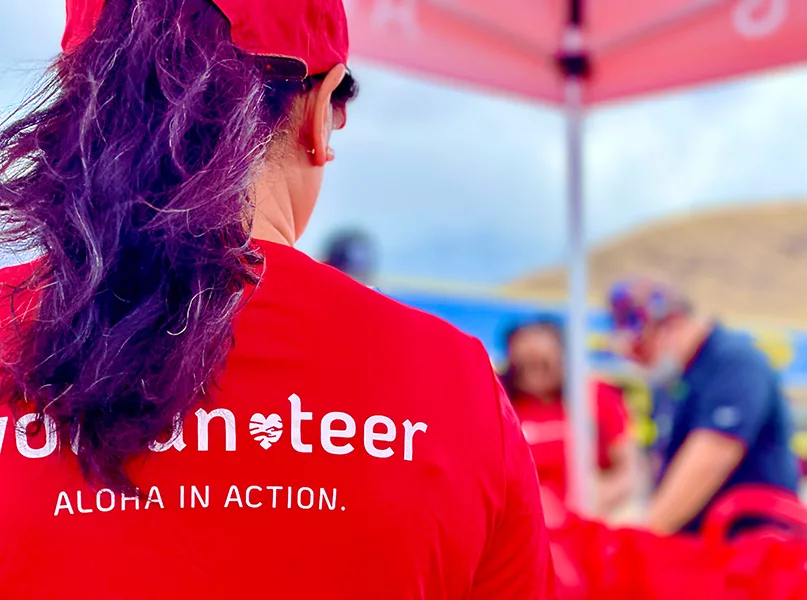
A HOPE FOR HEALING
Cost-free, AlohaCare’s Value-Added Services programs are essential tools to improve members’ health.
Value-Added Services are member benefits that are non-reimbursable to AlohaCare. Culturally appropriate Native Hawaiian healing services are the first of their kind in Hawai‘i.
“Ke Aloha Mau is our Native Hawaiian healing program, providing traditional services like hula dancing, ho‘oponopono for conflict resolution, lomilomi for physiotherapy and massages, and ai pono for nutrition and meals. These services are person-centered, addressing cultural disparities and bridging Western medicine and Native Hawaiian health,” Culley-Trotman highlights.
Education, language, literacy, and career training have been proven to better economic outcomes and increase overall well-being.
As a result, AlohaCare’s A Promise of Hope educational program partners with the Waipahu Community School for Adults and has expanded its covered benefits to provide a more flexible and attainable route with three educational options – English language, high school equivalency exam, and career transitional support.
“Built on community partnerships, non-profit CHCs are the cornerstone of Hawai‘i’s healthcare system, providing essential and quality care to historically underserved communities.
“It takes a village to get this work done, and our strong community partnerships are one of our key strengths. Additionally, our business partnerships with vendors, who bring best-in-class expertise, enable us to continually innovate and provide the best possible services to our members,” she prides.
As a result of the health disparities that were exacerbated during the COVID-19 pandemic, AlohaCare formed a strategic partnership with Papa Ola Lōkahi to work together to improve the physical, mental, and spiritual health of Native Hawaiians.
“It takes a village to get this work done, and our strong community partnerships are one of our key strengths”
Francoise Culley-Trotman, CEO, AlohaCare
WITH GOOD GRACE
The company’s GRACE (Geriatric Resources for Assessing and Caring for Elders) program, developed by Indiana University and adopted by AlohaCare, exemplifies its investment in a team approach for high-need populations.
This collaborative effort with provider teams aims to enable seniors to receive care at home and reduce the risk and cost of repeated hospitalizations.
“We partnered with three provider groups as part of our GRACE program to address the needs of our complex members with geriatric conditions. A nurse and a social worker assess the member’s condition, gather input and recommendations, and share them with the primary care provider and an interdisciplinary team which includes a behavioral health specialist and a pharmacist to develop a comprehensive health plan,” details Culley-Trotman.
The program has assisted in stabilizing the health of participating members and reducing the overall cost of care.
“In our policy advocacy work, we partner with government, for-profit, and non-profit organizations. Our collaborative efforts have led to victories such as reinstating adult dental coverage for Medicaid members, extending post-partum coverage, addressing language accessibility in Hawai‘i’s healthcare system, and providing meals for Hawai‘i’s children during the summer break through the Summer Electronic Benefit Transfer (Summer EBT) program, also known as SUN Bucks.
“Through our philanthropic efforts, we have seen the impact we make by funding programs that would not otherwise be sustainable. For instance, a CHC started one school-based clinic on Hawai‘i Island, which has many rural areas. It was launched successfully, leading to the opening of an additional eight locations,” Culley-Trotman enthuses.
With a special interest in creating pathways for community-based organizations to bill for their services, AlohaCare worked with one partner that began offering free housing and clinical services to community members. Today, that partner can bill Medicaid for services and has created a sustainable means of funding its future work.
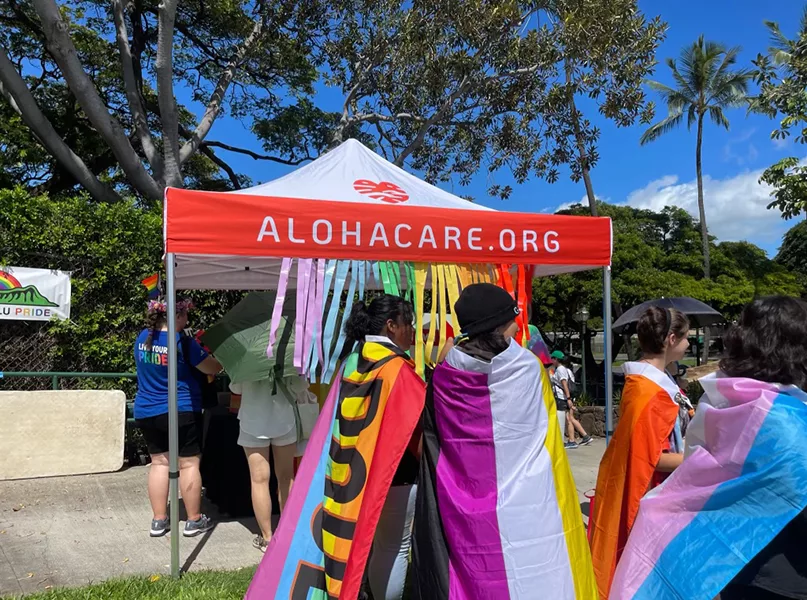
STRATEGIES FOR SOCIAL SOLUTIONS
AlohaCare is a safety net plan, which is evident in its name and perpetuated in its organizational priorities and culture.
“While Hawai‘i is often perceived as a dream vacation destination, living here can be tough for many residents – it’s one of the most expensive US states and one of the most isolated populated landmasses in the world,” Culley-Trotman reveals.
The majority of Hawai‘i’s goods are also imported, land for agricultural use is minimal, and the state has the second-highest rate of homelessness in the nation.
“The diversity and culture that makes us unique are integral to overall wellness and how residents access care. We have significant health disparities, especially among Native Hawaiians and Pacific Islanders,” she notes.
Programs such as Imua Loa – a giving initiative supporting vulnerable populations, housing, education, community and cultural strengthening, disaster recovery, and public health – aim to improve health outcomes by supporting AlohaCare’s members and mitigating or eliminating barriers alongside its A Promise of Hope, Ke Aloha Mau, and GRACE programs.
“Unite Hawai’i, a branch of Unite Us, provides a closed-loop referral platform connecting members to social services. Our partners sign up through Unite Hawai’i to receive member referrals and centralize utilization data,” adds Culley-Trotman.
Furthermore, AlohaCare has partnered with Tutu Bert’s medical respite home on the island of O‘ahu to reduce the number of days a homeless member is unavoidably waitlisted at an acute facility.
The home allows contracted providers to supply additional recovery services while accommodation is located.
“It provides a sober living environment linked to outpatient recovery services for individuals with substance use disorder. This has reduced hospital stays and lowered readmissions and emergency department visits,” Culley-Trotman elaborates.
“The diversity and culture that makes us unique are integral to overall wellness and how residents access care”
Francoise Culley-Trotman, CEO, AlohaCare
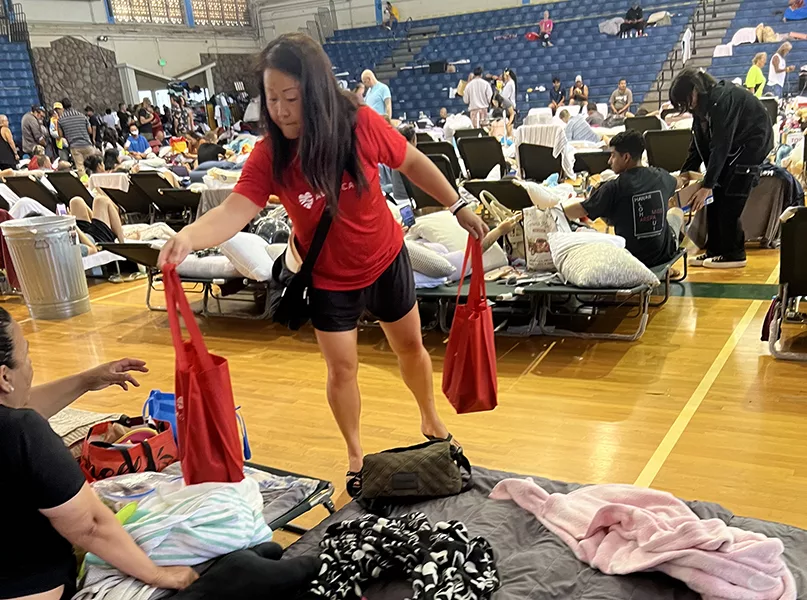
IMPROVING ISLAND LIFE
AlohaCare continually refines its customized approach to member care.
As technology continues to evolve, it has remained flexible in member outreach which includes responding to local crises and reaching out to members through various avenues such as text messaging to ensure the needs of the community can be quickly and effectively assessed and addressed.
Over the past year, AlohaCare has been dedicated to providing stability to its members by ensuring they don’t lose coverage for preventable reasons during the state’s Medicaid eligibility review process, which resumed after a multi-year pause due to the COVID-19 pandemic.
“We are focused on supporting members impacted by Maui and Hawai‘i Island wildfires. Our clinical operations are refining care programs for specific populations with the greatest needs,” assures Culley-Trotman.
Care teams prioritize pregnant mothers and infants, preventative care, and support for individuals with difficult-to-manage chronic conditions like diabetes and heart disease, as well as isolated senior members needing the highest level of care.
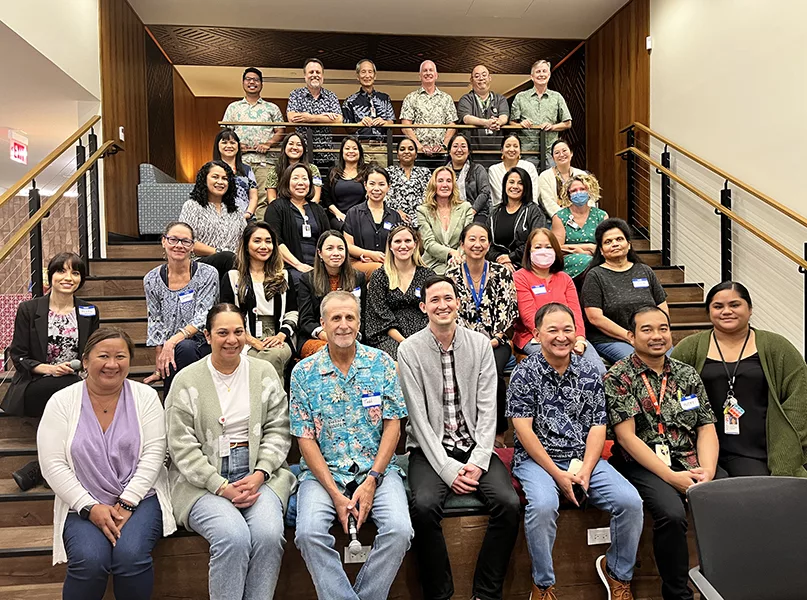
AlohaCare recognizes the important role that its large network of providers play in supporting high-need members and continues to adopt and roll out new technologies to support its network who help to further its mission.
“With IllumiCare’s Smart Ribbon, we’re advancing revenue streams and patient care. The platform offers over 20 apps that use patented technology to overlay the electronic medical record (EMR) screen while maintaining provider and patient context. It encourages users to take positive actions without disrupting provider workflow, resulting in savings, reduced care gaps, shorter lengths of stay, increased trial recruitment, and more.”
To achieve all of this, it is imperative that local workforce shortages are addressed. As part of a cohesive strategy that includes scholarships, workforce development grants, and expanded internships, AlohaCare provides $5,000 annual scholarships to members and their families for post-high school students pursuing a healthcare career.
“We host internship programs for high school and college students to create a pipeline of employees who understand the populations we serve. Additionally, we’ve partnered with the John A. Burns School of Medicine (JABSOM) for a summer course that allows medical students to learn about population health while on-site at CHCs,” concludes Culley-Trotman.
AlohaCare has evolved over three decades, embracing technology and transitioning to whole-person care with incentivized preventative services.
The organization is proud to be an innovator, expanding multicultural community knowledge through the Community Health Advisory Partnership (CHAP) and offering culturally appropriate Native Hawaiian healing services, setting the stage for the next intriguing chapter in its journey. g culturally appropriate Native Hawaiian healing services, setting the stage for the next intriguing chapter in its journey.
